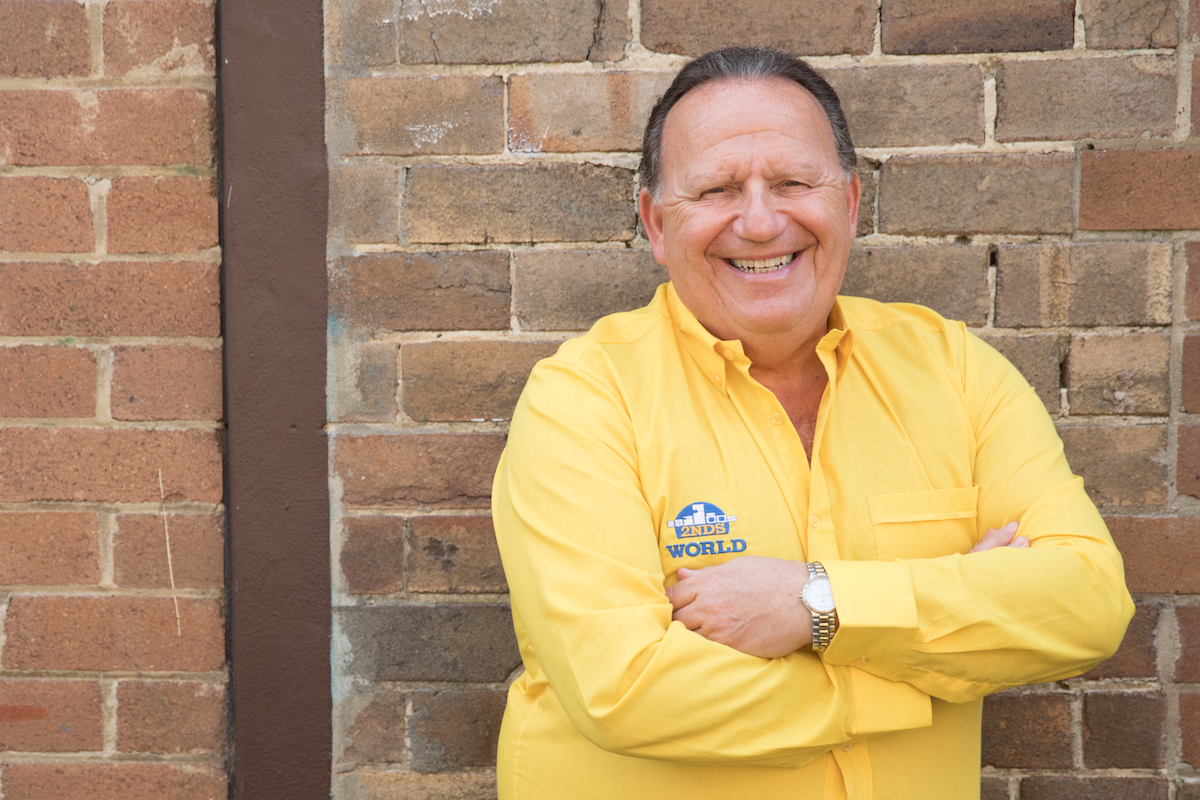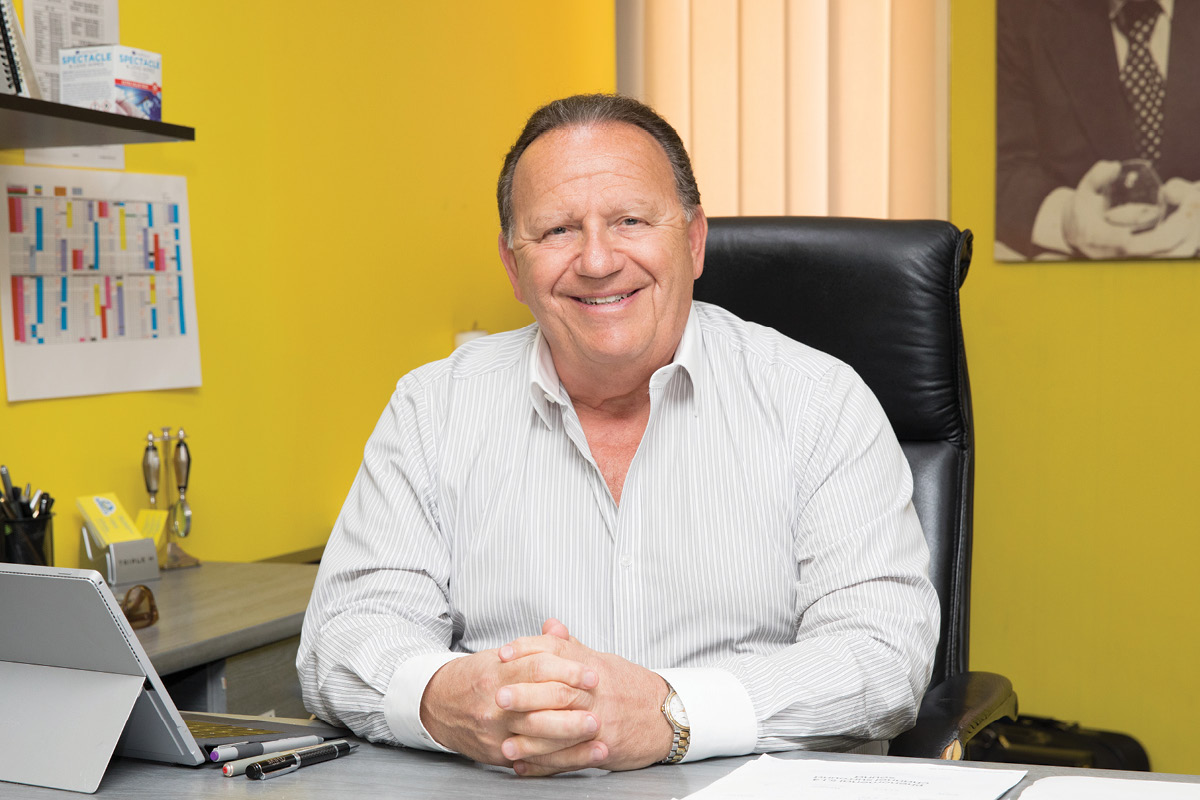Having just bought 2nds World, Peter Hammerman couldn’t wait to begin selling his whitegoods. So, walking around his new Sydney shopfront, he spotted a potential buyer eyeing a “little white box”. “I started telling this customer how good front-load washing machines are, and how the clothes come out dry because of how quickly they spin. Then the store manager, who I kept on after buying the place, tapped me on the shoulder and said, ‘Peter, that’s a dryer.’ I made sure I never made that mistake again,” he laughs.
In fairness to Peter, his expertise was in a different field entirely. He was a fifth-generation furrier, and one of Australia’s finest, until the anti-fur protesters put him out of business. “My great-great grandfather was a furrier in Poland and Berlin. Then my father came to Australia in 1937, and I joined the family business in 1965,” he explains.
“I was a craftsman. I could actually make fur coats. In fact, while I was studying over in Denmark, I helped make a fur coat for Queen Beatrix of the Netherlands.
“We had leased departments in David Jones stores all over Australia, but in the late 80s the anti-fur movement took hold. We had people throwing acid at our windows – it was really quite violent. So the fur business became unpopular and unviable, and sadly I had no choice but to close down.”
A new door opens for Peter Hammerman
In 1994, Peter went in search of a new career path and came across a small store in Sydney’s Cremorne selling second-hand refrigerators. “I had to reinvent myself and find a new business,” he explains. “I knew I didn’t want to get back into fashion because I could see it was a fickle, seasonal industry. I wanted to enter a market that was international, and the appliance business was.”

While Peter was new to the appliance industry, he had extensive experience as a retailer – and wasted no time using his business nous to grow the company. “People would come in and ask, ‘Have you got any small appliances?’ I would say, ‘No, we don’t keep small appliances.’ Then after the fifth or sixth person asked the same thing, we brought some in,” he reveals.
“Then somebody came in and asked, ‘Do you carry TVs?’, and I said, ‘No, we don’t carry TVs.’ Then after the tenth time, I said, ‘Well maybe we should get some TVs.’
“By simply listening to our customers and satisfying demand, we doubled the turnover in just three months and created a very viable business model.”
The growth begins
The next step was expansion. Peter opened three more stores, in Randwick, Parramatta and Auburn, before “the advent of the big box retailer” in the early 2000s. “Harvey Norman had an enormous display, and then The Good Guys came, and we all said, ‘Well, hang on. They’ve got a range of 60, 70 fridges, and we can only fit 20 in our small stores. How are we supposed to compete with these people?’ So we started to look for bigger premises, and we opened a 1,800-square-metre store in Auburn, before doing the same in Penrith, Caringbah, Castle Hill, and most recently in Melbourne.”
Peter now boasts six retail stores, a commercial division, and a successful website, which he’s upgraded four times since going live in 2008 and which is basically a seventh store in terms of the revenue it generates.
“The online component is equal to one store, and it’s our second-highest income earner. But, of course, its value is much higher than that because of the traffic it generates. It’s the most important part of our business; it’s the heart, really. I remember going to a conference in 2005, and someone from Sears was talking about how people were going to start buying things through the internet.
At the time I thought, ‘No way. People want to come in and look at the products.’ But after some convincing, the penny finally dropped, and I realised how convenient it was and how important it was going to be. Of course, it’s no secret that it has become the single most important influence on the appliance industry, and being an early adopter has been crucial to our success.”
What really is relevant is what’s going to happen in the future – and I love that. That’s what gets me out of bed every morning.
Staying on top of the latest trends is key to Peter’s leadership. In fact, when The CEO Magazine caught up with the managing director, he’d just returned from a two-day online appliance conference, where he was learning about the potential implications of Amazon’s move into the sector.
“Amazon is so big it can do anything; it’s going to be a very interesting phenomenon,” he says. “However, we’ll still have a niche in the marketplace because it doesn’t do factory seconds or run-out models, and that’s an advantage we need to protect.”
Relationships are critical
Peter has also built strong relationships with big-name brands like Fisher and Paykel, Electrolux, DeLonghi, ASKO, Samsung and Mitsubishi. “Our suppliers are really important,” he says. “No matter how big the industry gets, the personalities and the friendships make such a difference. And those major brands see the value in 2nds World because we act as a clearance for them.”
With 2nds World’s turnover now at A$90 million, and planning underway to open a further six stores, it has certainly seen tremendous growth over the past 23 years. Peter, now with a full executive board at his disposal, says it only feels like yesterday when his wife, Kitty, would have to do the bookkeeping on top of a washer, and hide the paperwork in the machine every time a customer walked in.
“I remember, when we first bought it, we were turning over A$1 million, and I jokingly said, ‘Wouldn’t it be great if we got to A$20 million?’ So where we are now? It’s pretty surreal.
“What happened 10 years ago is irrelevant, and what happened five years ago is irrelevant. What really is relevant is what’s going to happen in the future – and I love that. That’s what gets me out of bed every morning.”



